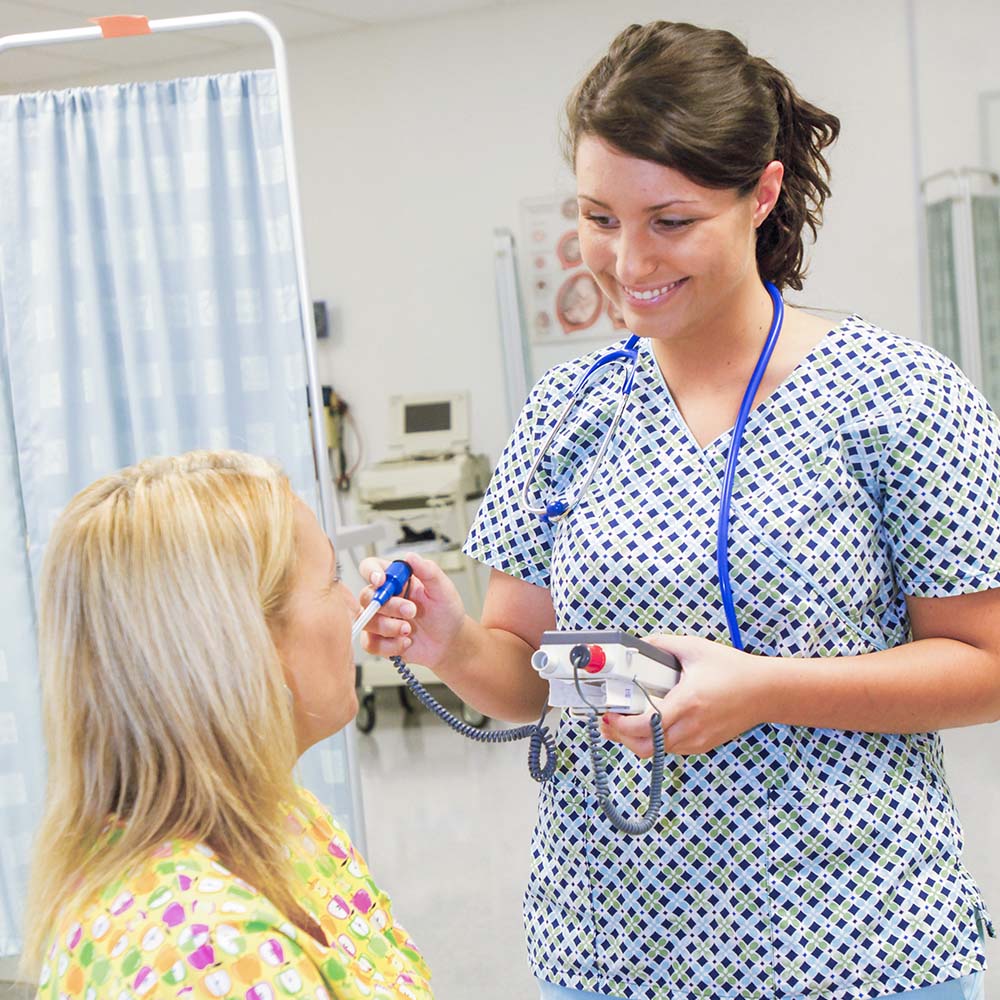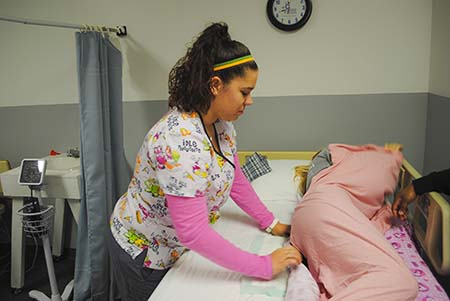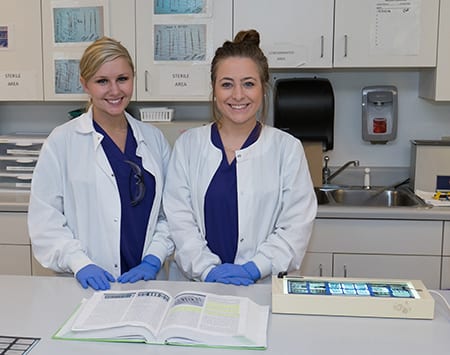Are you considering becoming a basic nursing assistant (BNA)? Are you curious about the basic nursing assistant responsibilities, class topics, and training time?
A basic nursing assistant is someone who provides basic care and help with activities of daily living. They also clean and bathe patients or residents.
A Basic Nursing Assistant Course will offer classes to teach nursing assistant duties and prepares the student for the Certified Nursing Assistant (CNA) certification exam that is necessary to become a CNA in the state of Illinois.
BNA Classes Teach Nursing Assistant Duties
At Midwest Technical Institute (MTI), the Basic Nursing Assistant (BNA) Course is designed to prepare qualified individuals to be safe, caring, and effective nursing assistants who work under the supervision of qualified health care professionals. This course is available at the East Peoria and Springfield, IL campuses. These classes present basic nursing assistant principles and provide opportunities for practice and demonstration of skills related to patient care.BNAs are trained to hold entry-level positions typically available in hospitals, nursing homes, and home health agencies. Students’ time will be divided between classroom instructions, laboratory time, and supervised experience in nursing home and/or hospital settings. This class prepares a person to take the State of Illinois certification exam.Upon meeting graduation requirements of the Basic Nursing Assistant course, a student will earn a Basic Nursing Assistant certificate. Classes require a total of 144 hours over 7 weeks and include the following:
Introduction to Health Care Systems
This class defines long-term care centers and their personnel, and Omnibus Budget Reconciliation Act (OBRA) regulations and requirements. Plus, it covers delegated tasks, resident rights, professionalism, ethical behavior on a job, qualities and traits of a successful nursing assistant, philosophy of patient care, and communicating with a professional healthcare team.
The Patient
This class reviews basic structures and functions of tissues and cells and the structures and functions of each body system. Students will learn the importance of quality of life for older patients. Several aspects of an older person’s life will be discussed including social relationships, aging, death, retirement, housing issues, and changes in body systems. The importance of sexuality throughout life and how aging affects sexuality in older persons will also be addressed.
Protecting the Person
This module, discusses the safety of older persons, risk factors, common safety measures, prevention of accidents, and restraint use.Students will learn about the different types of infection, signs and symptoms of infection, asepsis, disinfection and sterilization, as well as blood-borne pathogen standards. Also included are good body mechanics, lifting, turning, and moving persons comfortably.
Assisting with Activities of Daily Living
In this class, students will learn about the resident’s unit, proper bed making, hygiene, grooming, urinary elimination, bowel elimination, nutrition, and fluids.
Patient Assessment
Students will learn about the importance of exercise and activity of the older person, in addition to comfort, rest, and sleep throughout this class. The needs of geriatric patients with oxygen and assisting those with limited capabilities will also be discussed. Students will learn to measure vital signs such as blood pressure, temperature, pulse, and respiration. Students will also learn to assist with a physical examination, staying within the realm of a BNA.
Assisting with Care Needs
Students will learn about transferring, admitting, and discharging of persons. This class also includes wound care and heat and cold applications.Common physical and mental health problems will be introduced with topics on dementia, confusion, and developmental disabilities. Discussed throughout the class are rehabilitation and restorative care, basic emergency care, and the dying person.
BNA 200 Nursing Assistant Practicum
Over the course of 48 clock hours, students will participate in an unpaid practicum setting where attendance is crucial.Students will be responsible for getting themselves to and from their externships where they will apply the knowledge learned throughout the MTI BNA Course including hands-on caring for residents in various long-term care facilities.
Classes Within a BNA Course Teach Hands-On Basic Nursing Assistant Responsibilities
SOURCES
https://www.bls.gov/ooh/healthcare/nursing-assistants.htm#tab-2



